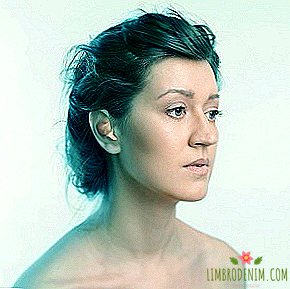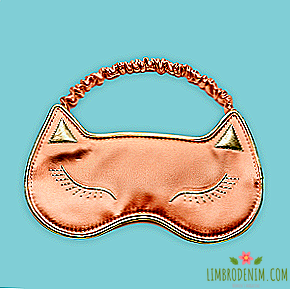How I moved to New Zealand to work as an engineer
In October 2009, New Zealand Auckland I was greeted by the spring sun and fresh sea wind, which struck me in the nose as soon as I got off the plane. My name is Tamara Belevich, then I was 22 years old, and for the first time I made such a long flight. In New Zealand, I came to learn English and begin the first paragraph of the ambitious plan on emigration, which we developed in Moscow with my husband, Dmitry. He was so tired of corruption, bad weather and eternal traffic jams, that he was ready to move to warm latitudes and start everything from scratch.

I liked the idea of a cardinal change of scenery, but the country wanted to choose not only by the principle of sea, sun and palm trees, but also with the prospect of career growth. I recently graduated from MGSU, received a degree in hydraulic engineering and got a job at a large state research institute. On the one hand, I really enjoyed being involved in the construction of something useful and monumental - seaports and hydroelectric stations. On the other hand, the more I traveled around Russia, the more pervasive mismanagement and corruption caught my eye. I understood perfectly what my husband, an entrepreneur, wanted to leave.
Studying the countries for resettlement, we rather quickly abandoned the UK, USA and Canada, briefly lingered on Australia and eventually made a choice in favor of New Zealand. None of us have ever been there before. My English was limited to the level of the average Russian school. Dima did not speak any language other than Russian. About New Zealand, I knew only what I read in the guidebook, which I accidentally caught my arm during our honeymoon in Cyprus. I was delighted with the photos of volcanoes, deserted beaches, geysers and the incredible blue of the lakes. We decided to take a chance.
After studying the topic on forums and specialized sites, they found out that the New Zealand Migration Service publishes an official list of professions needed by the country. It usually includes engineers, doctors, and more recently, jockeys, lumberjacks, and bicycle repair specialists. Eligible candidates, provided they are young, physically healthy, speak English and find a job in their field, receive a residence permit in New Zealand using a lightweight scheme. Their spouses, naturally, too. This was our option.
I was delighted with the photos of volcanoes, deserted beaches, geysers and the incredible blue of the lakes
Arriving in Auckland, I settled in the family of engineer Sam and the school teacher Judith. I had a few months to pull up my modest English to a level with which I could enroll in a local university. The head was plump on the number of new words and the volume of grammar, but the success of our family plan depended entirely on me, and I confidently walked towards the intended goal. I spent all my free time getting to know the country and the city better.
Auckland I immediately liked. Good ecology, the sea nearby, everywhere parks. And incredibly safe. After Moscow, with its metal doors, fences, guards and alarms, it struck me that here two-thirds of the entrance doors are made of glass and no one even thinks that someone will break this stained-glass window and steal the house. Everything is so calm that you do not even ask for documents on domestic flights around the country, just a ticket.
Language courses have been very effective. After four months of intensive training, I passed the English exam for a passing grade and entered the magistracy of Auckland University of Technology in the specialty "Construction Management". By that time, the husband, who had been in Moscow all this time, finally moved to New Zealand with me.
I started to learn. The master program was designed for a year and cost 22 thousand dollars. Unfortunately, grants for foreigners in New Zealand are practically non-existent. The manner of university teaching was very different from what I was used to in Russia - in Auckland, for example, they did not follow attendance at all. Here, students are provided with all opportunities for comfortable learning and complete freedom of action. Everyone chooses to study or lose money paid to the university.
The question of further employment, of course, began to bother me almost from the first days of study. I chose hydrotechnics as the theme of one of the coursework; however, starting to collect material, I quickly realized that it was seriously lacking. There was nothing to lose, and I wrote a letter to the management of the largest hydraulic engineering company in New Zealand, where I explained that I was writing a scientific work and really want to ask some questions to the experts. I was not only answered, but also invited to the central office in the capital - Wellington. My meeting with the managers lasted five hours. And when, after a couple of weeks, I, as promised, sent them to see the text, the company unexpectedly sent me an invitation to work.
On this New Zealand surprises are not over. Before the protection of the diploma there was another very tempting business proposal. Australian consulting company WorleyParsons, which specializes in the oil and gas sector, invited me to the position of junior engineer with an annual salary of 55 thousand dollars. Three months after I went to work, Dima and I received a permanent residence permit in New Zealand.
For several years in a consulting company, I managed to do joint projects with oil refineries, Auckland Airport and a state-owned water supplier. A couple of months ago, I was lured to my place by New Zealand’s largest dairy producer. Now I am leading a project to modernize one plant in Auckland. I have six men in my submission. I like very much that it is customary here to maintain a very clear distance between professional and personal life - no one climbs into the soul and is not fond of gossip. The subordinates call me the "iron lady", because in the office I am demanding and can be quite tough. Otherwise, how would I manage employees who are older than me by more than 25 years? Only after the move, I realized what a thrill it is - to work on large construction projects and not to think about corruption at all. I check all tenders myself. In New Zealand, everything is very simple: you do your job, knowing that nobody has paid anything to anyone.
In parallel, all this time I helped my husband. While Dima was learning English, he understood everything so much about language schools and visa documents, that he began to advise foreigners who want to study in New Zealand and Australia. As a result, we launched an international website for booking English Tambook courses.
Only after the move, I realized what a thrill it is to work on large construction projects and not to think about corruption at all.
Auckland is an amazing city in the sense that no foreigner with the most monstrous emphasis on the world will ever feel like a second-rate person here. The absolute tolerance of locals to visitors is a matter of course. Therefore, I have never heard anything unpleasant, much less offensive.
New Zealanders, especially from wealthy families, are very slowly growing up. Until the age of 30, they live on their parents' careers, think about what they can do in life, travel a lot, study something lazily at the university, drink wine in restaurants for a long time, and enjoy lying on the beach with pleasure. And in 35 years, these same people urgently get married, acquire a house and give birth to three children in a row at once. I'm so bored. But they come across among the New Zealand youth and those who early faced the real life and did not break before the difficulties, but used them for self-development. That's what I'm friends with.
I admit that in New Zealand there is virtually no cultural life at the level I was used to. I try to go to the performances of all the interesting artists who come to Auckland, but this, of course, is not enough. However, I don’t do this tragedy, because I can always get away on vacation wherever I go — to New York, London, Moscow, Paris — and there, in full, I can immerse myself in museum and theater life.
I can say without a doubt that New Zealand is my home, and I'm not going to move anywhere from here. Did I feel happier in Auckland than in Moscow? More likely no than yes. But I know for sure that my life here has become much more comfortable and safer. I breathe fresh air, swim in the sea, ride a bike and go to an interesting, well-paid job.
Photo: biondo3rd - stock.adobe.com, Flickr





